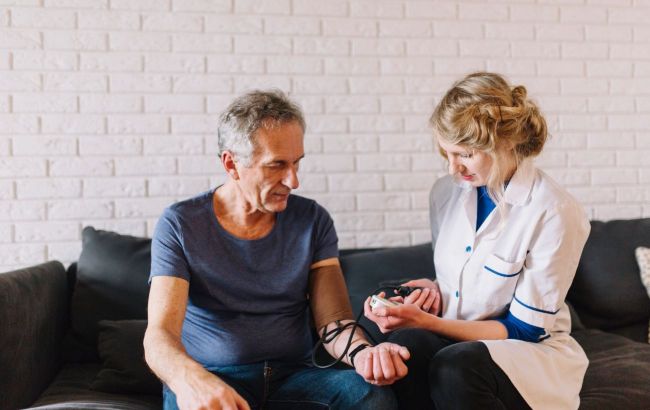Bradycardia symptoms and first aid: Cardiologist's advice
 Illustrative photo (Freepik)
Illustrative photo (Freepik)
People over 70 are often prone to low heart rate, a condition that can be life-threatening, so it's important to know what to do in case of emergency, according to cardiologist Natalia Ivaniuk.
Why does this condition occur?
In medical terms, it's sinus node weakness syndrome, or bradycardia.
Bradycardia is when the heart beats slower than usual, with a rate of less than 60 beats per minute at rest.
It can be physiological, meaning it's normal in athletes and teenagers. In older people, bradycardia is more often pathological, resulting from other conditions such as ischemic heart disease, heart failure, cardiomyopathy, acquired heart defects, diabetes, hypothyroidism, or long-term medication use (antiarrhythmic drugs).
Symptoms of bradycardia
Symptoms may include rapid fatigue, weakness, dizziness, fainting, shortness of breath, drowsiness, ringing in the ears, and chest pain.
The cardiologist urges not to ignore these symptoms because a low pulse leads to inadequate blood supply to all vital organs and their functioning.
To diagnose a low heart rate, the following examinations are necessary:
- Cardiologist consultation
- Electrocardiogram (ECG)
- Holter monitoring
- Echocardiogram
- Additional examinations with a doctor: laboratory diagnostics, ultrasound
First aid
During a bradycardia episode, measure the heart rate immediately. First aid is provided depending on the obtained values.
If the heart rate is between 50-60 beats per minute, the actions are as follows:
- Drink a cup of not too hot tea or coffee.
- Use a blanket, hot water bottles, or warm clothing to warm up, starting from the lower extremities.
- Give some light physical activity to increase heart rate.
Medical assistance is needed when the pulse is less than 50 beats per minute, accompanied by dizziness or chest pain. In such a case, you should:
- Call an ambulance.
- Start warming up the body of a person.
- Do not allow the patient to take any medications except those prescribed specifically for bradycardia.
It's important to remember that the condition can lead to cardiac arrest, so qualified medical assistance is mandatory.
This material is for informational purposes only and should not be used for medical diagnosis or self-treatment. Our goal is to provide readers with accurate information about symptoms, causes, and methods of detecting diseases. RBС-Ukraine is not responsible for any diagnoses that readers may make based on materials from the resource. We do not recommend self-treatment and advise consulting a doctor in case of any health concerns.

